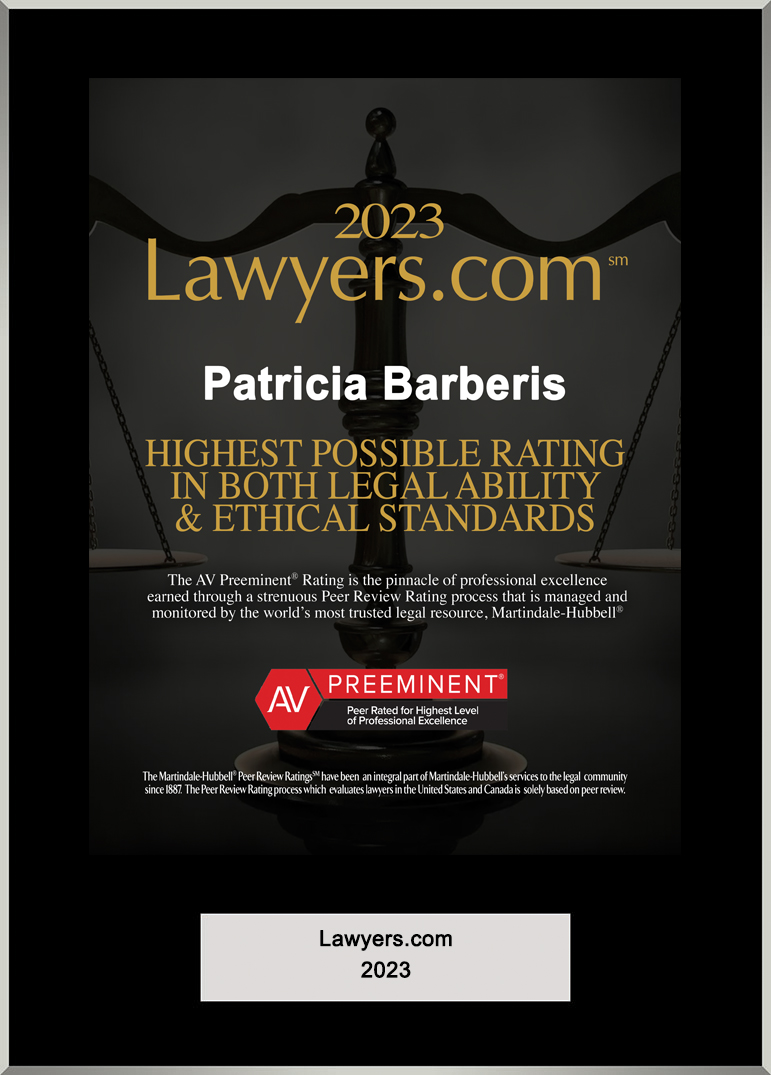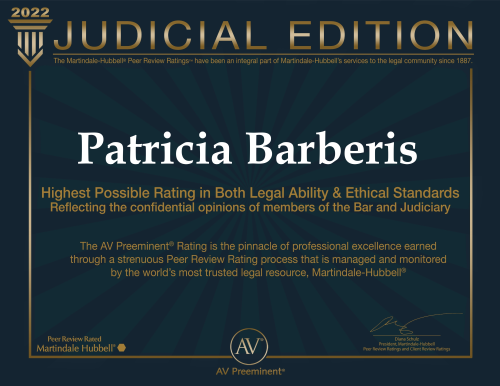Child Custody Living Conditions
Don’t Let Your Child Suffer – Turn to Our Firm
As a parent, providing for your child is simply second nature. But what happens when your ex fails to do the same after a divorce? If you are concerned that your child is suffering  from poor living conditions as a result of a recent custody order, you do not have to simply sit by and watch. The best way to protect your child is by retaining a child custody attorney from Patricia Barberis, A Law Corporation.
from poor living conditions as a result of a recent custody order, you do not have to simply sit by and watch. The best way to protect your child is by retaining a child custody attorney from Patricia Barberis, A Law Corporation.
We have been representing South Bay families since 1977, bringing 70 years of shared experience to every case. As passionate advocates for the rights of our clients, we can be trusted with the details of your case. Your child’s safety is on the line – the time to act is now.
Tell us about your case by filling out an online evaluation form.
What Is Considered Unsafe Living Conditions for a Child?
Unsafe living conditions for a child include any type of abuse or neglect. A court will want to see actual proof of your claims and not having evidence can work against you.
Our firm can help you identify what is considered a poor living condition. It is important to separate your emotions from legitimate concerns before making claims of unfit living conditions.
Evidence of the following may be enough for a judge to look into your concerns:
- Abuse: It's important that your child is free from physical, emotional, and sexual abuse. If there's evidence of physical abuse, such as bruises or a serious injury; evidence of emotional abuse, such as threats or failure to display any signs of love; or evidence of sexual abuse, these are all qualifiers of a poor living condition for a child.
- Neglect: This is the most common type of child maltreatment in the United States. Chronic child neglect is defined as the ongoing deprival of a child's basic needs for proper growth and development. It is broken down into four main categories:
- Physical neglect: This occurs when a child is deprived of food, clothing, proper shelter, and/or the child is not properly or thoroughly supervised
- Medical neglect: It's important that a child receives proper medical care, including mental health treatment if necessary. Failure to provide a child with this necessary care is considered medical neglect.
- Educational neglect: It is necessary that a child receives proper education, and this includes proper placement into special education classes or activities in the best interests of the child. Failure to provide a child with proper education is considered educational neglect.
- Emotional neglect: Just as a child's physical wellbeing is important, their emotional wellbeing is equally as important. Failure to provide for a child's emotional needs and provide adequate psychosocial support constitutes emotional neglect. Additionally, allowing a child to improperly cope with their emotional issues via drug or alcohol use is also considered emotional neglect.
Parents are expected to act in the best interests of the child and subjecting them to poor or unsafe living conditions falls far below this expectation. When the health of your child is at risk, you have the right to speak up. We are here for you when you do.
How to Prove an Unsafe Environment for a Child
Every circumstance is unique, and some may require additional or different steps from the examples we have listed. You can generally follow these basic steps to prove an unsafe environment for a child:
1. Keep records of any specific incidents or behaviors that suggest the child might be in danger. This could include verbal abuse or physical harm.
2. Observe the child's environment to identify any safety hazards such as the absence of locks, childproofing mechanisms, alcohol, drugs, weapons, or other dangerous items.
3. Take pictures or videos of any safety hazards in the child's environment.
4. Gather any other evidence, such as police reports or medical records, related to incidents or injuries that suggest an unsafe environment.
5. Obtain statements from witnesses who can corroborate your claims about the unsafe environment.
6. Consider hiring a professional evaluator, such as a therapist or a child custody evaluator, to provide an independent assessment of the environment and any potential risks to the child.
7. Take legal action. If you believe that a child is in immediate danger, consider contacting your local child protective services or law enforcement agency.
If you are in a custody dispute or contested divorce, consult with an experienced South Bay family law attorney who can help you take legal action to ensure the safety of the child.
South Bay Child Custody Lawyers Who Put You First
When you work with our firm, you can expect timely responses to your questions and close involvement throughout your case. We strive to update our clients with changes as they occur, always keeping you in the loop every step of the way. Nothing is more important than your child and we honor that in how we handle your case.
For the most comprehensive legal support and counsel, contact us today.










